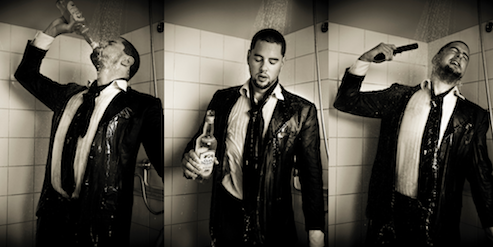
There’s a cycle that anyone who has a chronic problem with drugs, alcohol, anxiety or depression knows all-too-well: 1) emotional low, 2) self-medication, 3) bad decision-making, 4) hangover/daylight, 5) emotional low. Rinse and repeat. Strangely enough emotional highs result in essentially the same cycle.
The problem is this: The cycle can easily spiral out of control. Oftentimes it does. And the end result can be tragic. But it can be successfully treated.
Some say these dysfunctional and often debilitating cycles are caused by disease. Others see every step in the cycle as a choice to be made or not. It depends on the individual case but there’s usually some truth to both viewpoints. But that doesn’t make it any less real to the countless individuals who suffer from those issues, or some combination or variant thereof.
Whether individuals successfully resist or succumb to the cycle, you’d be surprised by the percentage of the population that struggles with this sort of thing, sometimes every day of their lives. I don’t have any hard data but I don’t need to. I know it’s a big number. Anyone who’s been around knows it’s a big number.
It doesn’t just happen to wackos, addicts and losers, either (I’m purposely using pejorative terms to bring attention to the stigma they cause). I bet you have plenty of friends, family members, coworkers, employees, even bosses that quietly and desperately deal with this stuff day in, day out. Perhaps you or a loved one is one of them.
Here’s the thing. While there are all sorts of different root causes that enable the cycle, it can also be mostly or even entirely environmental. Financial, work, health or family related problems cause real changes in brain biochemistry, changes that substance abuse can exacerbate. Next thing you know, you’re deep in the cycle’s clutches.
In other words, it can happen to anyone. And the stigma over admitting to having a problem keeps victims isolated, which further fuels the cycle.
Related: How to Know If You Have a Drug or Drinking Problem
The message here is simple and threefold:
1. We live in a society that seems to revel in judging others. Don’t. That just fuels the stigma. Unless or until it happens to you, you have no idea how enticing and insidious the cycle can be. You spend your entire life living inside one person’s head: your own. You can and will never know what it’s like to live in someone else’s head.
2. I know it doesn’t always seem that way but the truth is we do live in a somewhat enlightened society. There is empathy and treatment for this sort of thing. If you have a problem, talk about it to someone you trust. And if you’re on the receiving end of that talk, be empathetic and encourage whoever it is to get professional help.
3. It’s extremely difficult to tell someone you care about something they do not want to hear, but tough love can definitely help. I know this for a fact. Be strong. Be honest. Be persistent. Be there. Hopefully it’ll pay off eventually. And above all, don’t lose hope and don’t become codependent.
Finally, this: Mental health and substance abuse problems don’t just happen to them. They happen to us. They happen to you and me. Whether it’s you or someone you care about, deal with it now. It probably will not get better on its own. And there is no magic cure. But no matter how bad it is, with professional help, discipline and support, it can be successfully treated.
Image credit Hardleers via Flickr